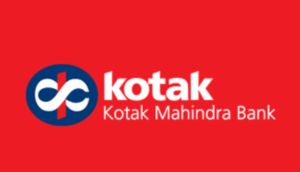RBI News on Kotak Mahindra Bank : Data Security Concerns, But How Safe is Your Money in Other Banks?
The RBI stopped Kotak Mahindra Bank from signing up new customers online and issuing new credit cards due to serious IT security problems. An identity verification company CEO thinks this is the reason for the RBI’s action.
The RBI’s press release on Kotak Mahindra Bank flagged serious shortcomings in how the bank handles customer data. Specifically, it identified issues with the bank’s practices in areas like IT asset management, controlling user access, managing risks from vendors, data security itself, and plans to prevent data leaks. Additionally, the RBI found weaknesses in the bank’s systems for ensuring continuous operations and recovering from disasters.

RBI News on Kotak Mahindra Bank :
India has laws (IT Act & DPDP 2023) to safeguard bank customer data, requiring secure storage, responsible use, and clear communication on data practices. However, a recent IDfy report analyzing top 10 Indian banks found cause for concern:
- Unclear privacy policies: Only 1 out of 10 banks clearly explained what data they collect.
- Potentially excessive data collection: Many banks use cookies for marketing beyond core banking functions.
- Lack of consent for data use: No banks obtained explicit consent for marketing cookies.
The seriousness of banks’ commitment to the DPDP Act is unclear:
- DPDP Act requirements: The Act outlines strict data protection rules for businesses handling large amounts of sensitive data, like banks. These include data security, specific purpose consent, and user control over their information.
- Kotak Mahindra Bank: RBI’s action against Kotak Mahindra Bank for data security lapses suggests potential non-compliance with the DPDP Act (even though not yet in effect).
- Uncertain enforcement: Experts debate whether RBI’s action directly references DPDP or focuses on broader IT management shortcomings.
Here’s what different experts say:
- Nazneen Ichhaporia: Believes banks will likely be classified as “Significant Data Fiduciaries” under DPDP, requiring stricter data protection practices.
- Nilesh Tribhuvann: Thinks RBI’s focus on data security could imply non-compliance with upcoming DPDP regulations.
- Minal Madan: Believes Kotak Mahindra Bank’s issues might stem from IT framework implementation failures, not necessarily DPDP violations.
- Ashok Hariharan: Raises concerns about the bank’s overall security standards, potentially including vendor compliance with data security protocols.
The Reserve Bank of India (RBI) established clear IT governance expectations for banks in late 2023. Their “Master Directions on Information Technology Governance, Risk, Controls, and Assurance Practices” came into effect in April 2024. This applies to all banks and other financial institutions under RBI regulation. The Master Direction essentially outlines a rulebook for these entities regarding IT governance, infrastructure and service management, and cybersecurity.
RBI News on Kotak Mahindra Bank:
The RBI is taking data privacy and safety seriously, and the action against Kotak Mahindra Bank shows this. Here’s why:
- RBI’s power to penalize: While the RBI can impose fines, Tribhuvann suggests these might not be enough to deter big banks due to their size.
- Going beyond fines: The RBI’s action against Kotak Mahindra restricts its business operations, demonstrating a willingness to use harsher measures than just financial penalties.
- Focus on fixing the problem: Restrictions aim to push Kotak Mahindra Bank to fix its IT security issues rather than simply pay a fine and move on.
This shows the RBI’s commitment to protecting customer data and ensuring strong IT practices within banks under its regulation.
Stay informed! Check out TimesWordle.com for all the latest news
See Also:
Kotak Bank News : RBI Restricts Kotak Mahindra Bank’s Online Customer Sign-Ups Due to IT Concerns
RBI Takes Action on Kotak Mahindra Bank: A Look at Recent Regulatory Interventions
You must be logged in to post a comment.